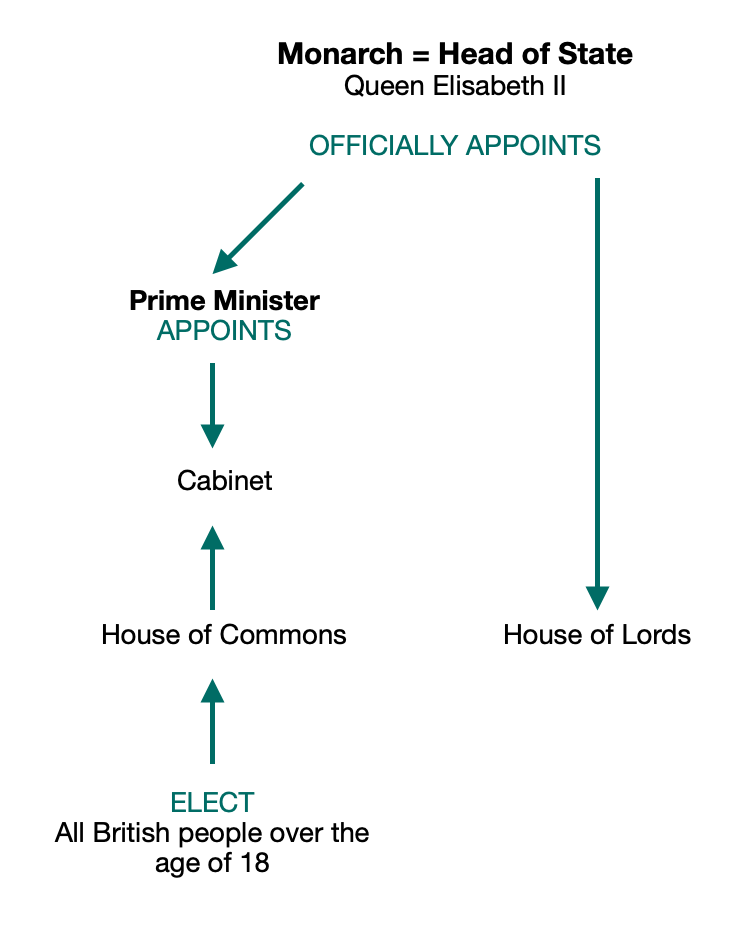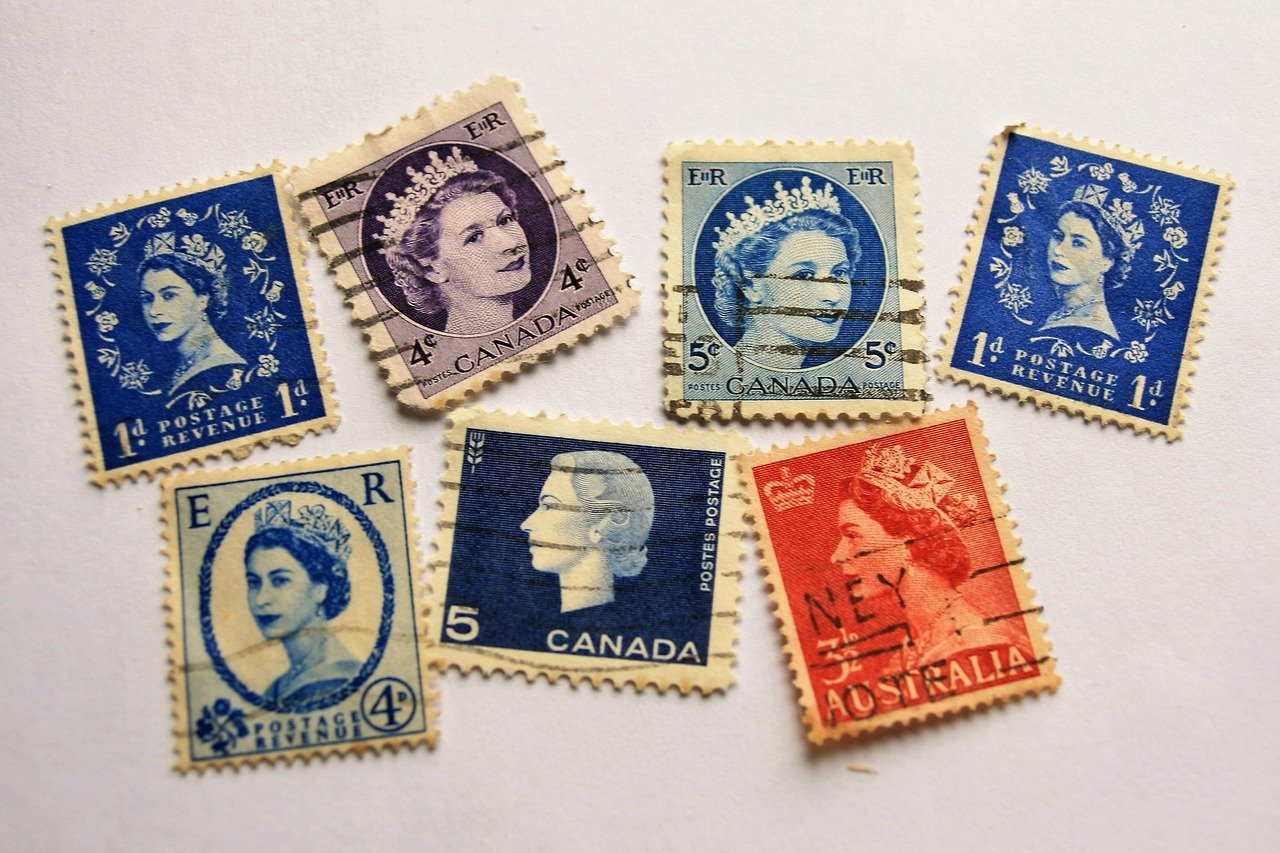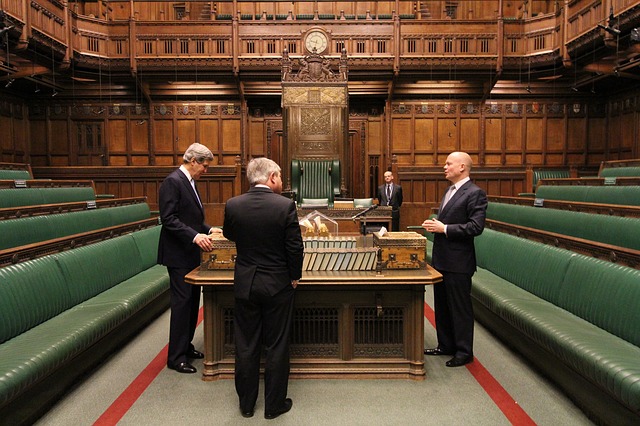In this article we are going to learn about the structure of the British political system.
We all know about the parliamentary monarchy in the United Kingdom but it leaves us with numerous questions about the political system surrounding the monarchy.
The late Queen Elizabeth II was one of the best known monarchs of our time. But what is the monarch's role? What does the Prime Minister do, and which other institutions are important?

The monarch
Representative role:
Head of State in the United Kingdom
ceremonial Head of State (for the Commonwealth countries like Canada)
Head of the Church of England
as well as Commander in Chief of the British Armed Forces
Ceremonial functions:
state visits overseas/in other countries
in support of charities
formal meetings with foreign Heads of State when they visit the UK
various ceremonial duties on holidays and days of celebration
gives knighthoods (= zum Ritter schlagen) and other honours on recommendation of the Prime Minister
Political functions:
in charge of summoning and dissolving the Parliament
gives a speech at the opening of Parliament each year
has to sign bills passed in the Parliament
meets up regularly with the Prime Minister to talk about current events and to give advice
appoints governors, bishops and judges
officially appoints the Cabinet as well as the Prime Minister
The Prime Minister
Their powers and duties:
decision making for governing the country, together with the Cabinet
can appoint and dismiss members of the Cabinet
in control of the Cabinet agenda meetings and committees
leader of the political party they belong to
informs Parliament of governmental activities
advises monarch/Queen about public appointments
informs monarch/Queen of government policies
The Cabinet
The role of the Cabinet
all members are heads of a government department
the total number of senior MPs, who are either Ministers or Secretaries of State, varies and is decided by the Prime Minister (ca. 20). This decision depends on how important the Prime Minister thinks a Secretary/Minister of a certain department is
responsible for making decisions with the Prime Minister
House of Commons and House of Lords
House of Commons
consists of 650 "Members of Parliament" (MPs)
elected by all British people who are eligible to vote
each member represents an area/part of the population, ensuring proportionate representation
main functions: pass laws, debate political issues, control government policy and administration
seating arrangements (pictured below): The Prime Minister and Cabinet sit on the front bench and are facing the Leader of the Opposition and its so-called Shadow Cabinet. MPs who are not members of the Cabinet sit on the back benches.
House of Lords
membership is either inherited, appointed or official function; it consists of:
Lords Spiritual (26 archbishops and bishops of the Church of England)
Lords Temporal (life peers and hereditary peers)
there are about 1200 members but there is no fixed number
It used to be able to reject any legislation (up until 1949) but is now only able to delay the passing of a new law
highest and final Court of Appeal for the British Law Courts
Law making
There are a few steps involved in the making and passing (or denyal) of a new law. Concerning the British political system, this involves the following 6 steps:
Suggestion of a new law: by politicians, special interest groups, government departments or individuals
The Cabinet agrees on the so-called bill (= the text of a law)
The bill is discussed in the House of Commons. They vote on whether it should become a law.
It is further discussed in the House of Lords. They can then make changes but cannot decline it altogether.
A final vote is taken in the House of Commons
The monarch/Queen signs the bill and by that it becomes a new law.
The proceedings are usually taking place publicly and speeches are published daily. Some parliamentary debates and other parts of it are recorded for radio and television.
Du hast noch nicht genug vom Thema?
Hier findest du noch weitere passende Inhalte zum Thema:


